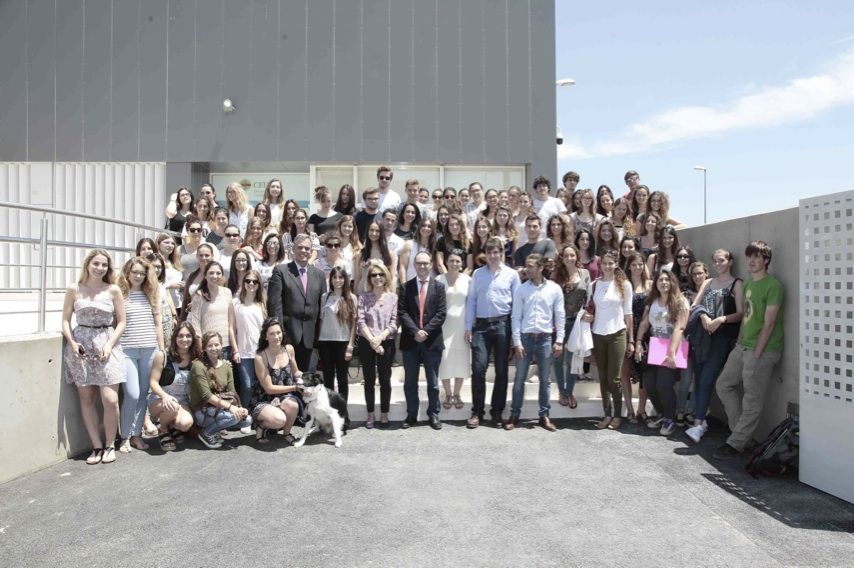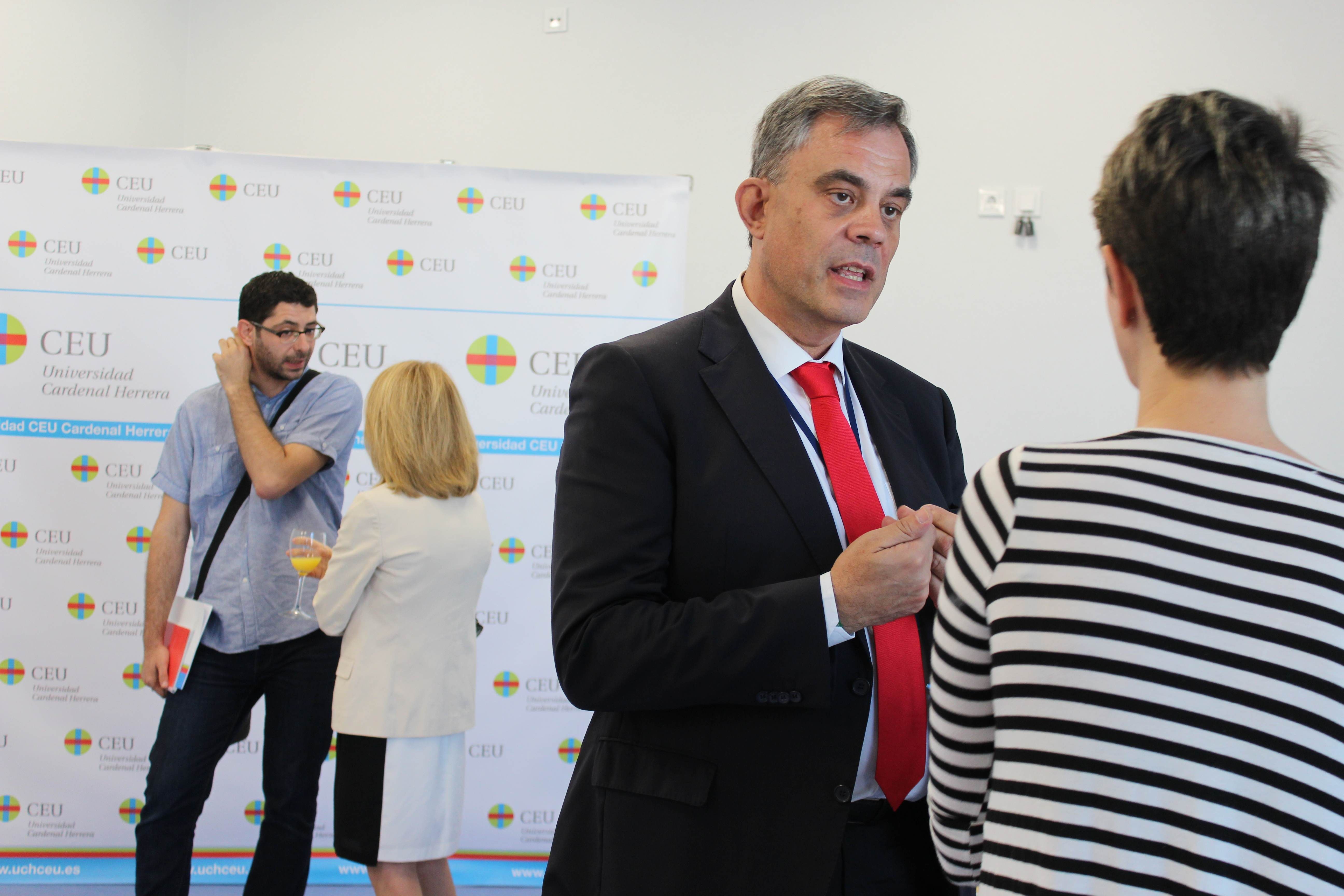Interview with the dean of the Faculty of Veterinary of University CEU Cardenal Herrera, Santiago Vega.
“We are pioneers in Europe for many things. Only a few European faculties have bilingual degrees, we have two: in French and English”. In this way, the dean of the Faculty of Veterinary of University CEU Cardenal Herrera, Santiago Vega, has emphasised the work developed throughout the decades of training of vets in the Region of Valencia.
The Faculty of Veterinary celebrates its 20th Anniversary. 20 years of Veterinary in CEU and in the Valencia, as University CEU Cardenal Herrera was a Pioneer in the installation of these studies.

Santiago Vega García is a Doctor in Veterinary from the Universidad Complutense in Madrid, certified in Health by the Carlos III National School of Health in Madrid. Dean of Veterinary at CEU UCH for 16 years, Vega has stated how the Faculty has changed in these two decades of work.
“I arrived in the second year of the Faculty of Veterinary and we then had 3 offices, we rented the farms; they were hard starts but exciting. The first development had a tremendous vocation, and it still does, but they were students who came from doing other degrees because Veterinary did not exist here”, she noted.
Today, “we have a Degree in Veterinary that we feel very proud of. We are among the best faculties in Spain thanks to the great effort of investment of our CEU Foundation, of the University and of the commitment of everyone who works here. We are pioneers in Europe for many things. Only a few European faculties have bilingual degrees, we have two: in French and English. In Spain no ons else has such a wide offer. You have the recognition of the students who come from other countries to study at CEU, being especially important in the case of students who come from France, because let’s not forget that Veterinary Science was born there, the first faculty in the world in Veterinary was the Faculty of Lyon. And now, they know us, they recommend us and they search for us. The best publicity is your students talking about you”.

Vets care for humans and everything around them
Dean Vega has emphasised how the profession has changed within these 20 years, where the vet is “no longer just a doctor for animals. We are those who guarantee the production of nourishment in quantity and quality. We care for everything that has to do with the environment. Vets have the mission of preventing, through the correct nourishment, the transmission of illnesses from animals to humans and everything to do with that… Our ultimate objective is the human, as in all health professions”.
For Dean Vega, “we must keep working so our students are perfectly able to do everything to do with Health, there is not an Animal Health and a Human Health; there is one Health. We have to train professionals so the multidisciplinary teams ensure each time that the Health is better and is equal for the whole population”, he said.
“21st Century teaching must follow the line of Faculties in the north of Europe. There are practically no lectures in favour of the work of the student in small groups with the professor. What is delivered is the method of the case, where the student is taught to face real cases and to make the best decision for each case. The 21st Century vet has to be capable of facing problems from several points of view.”






